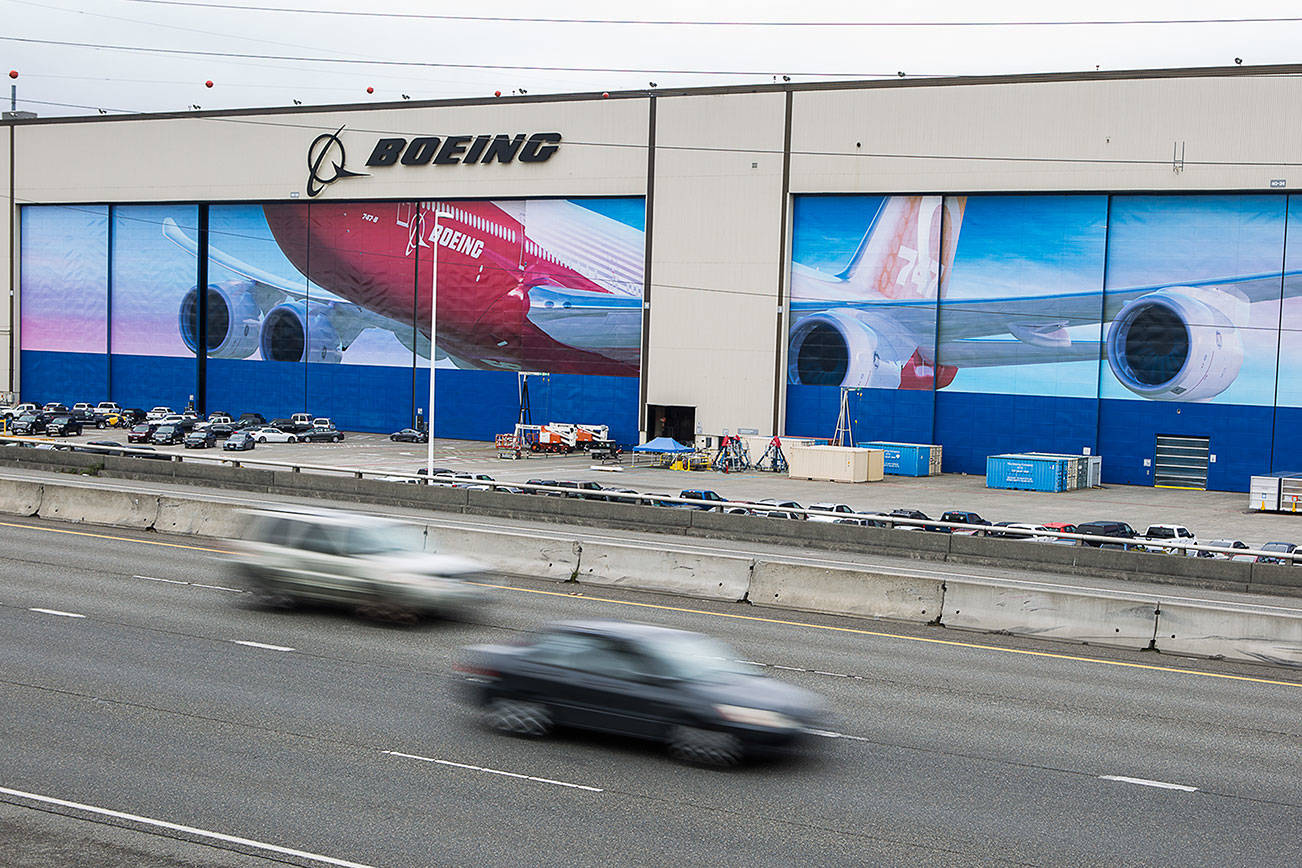SEATTLE — Boeing announced to employees Wednesday a first batch of almost 7,000 involuntary layoffs in the U.S., which added to more than 5,500 voluntary buyouts means it will cut almost 12,300 jobs company-wide.
Washington state takes the biggest hit: 9,840 Boeing jobs will be cut before July 31 in a combination of buyouts and involuntary layoffs, the company said.
“We have come to the unfortunate moment of having to start involuntary layoffs,” CEO Dave Calhoun said in a message to all employees. “We’re notifying the first 6,770 of our U.S. team members this week that they will be affected.”
He said the “devastating impact” of the spread of COVID-19 on the airline industry translates into “a deep cut in the number of commercial jets and services our customers will need over the next few years, which in turn means fewer jobs on our lines and in our offices.”
“I wish there were some other way,” he added.
This is the first and largest cut, but there is more to come. Boeing had earlier said it plans to cut a total of about 16,000 jobs total due to the dramatic falloff in airline business.
A company spokesman said Wednesday that “it will take some time for the company to reduce our workforce by the approximately 10% we announced.”
“Today’s numbers represent the largest segment of layoffs. The several thousand remaining layoffs will come in additional tranches over the next few months,” he said.
Boeing had previously announced stiff reductions in airplane production plans.
The 787 Dreamliner has been cut from 14 per month to 10 per month this year and will drop to seven per month by 2022. Production of the 777 and 777X will be cut to three per month from the current five a month.
And previous optimistic plans to quickly boost production of the 737 MAX up to 42 jets per month just months after it gets clearance to fly again have been abandoned. The plan now is to raise the rate to 31 planes per month sometime next year.
In his message, Calhoun told the employees who will keep their jobs that “enormous challenges remain” and that Boeing “will have to adjust our business plans constantly until the global pandemic stops whipsawing our markets in ways that are still hard to predict.”
Laying out the priorities to steady the business, he listed keeping employees healthy and safe, supporting airline customers and Boeing suppliers through the recovery, and working with the airlines “to assure the traveling public that it can fly safe from infection.”
He said the defense and space side of Boeing’s business remains strong. And despite the collapse in demand for passenger jets, he said the commercial airplanes division will move forward “with our plan to restart 737 MAX production in Renton.”
The MAX has been grounded for almost 15 months following two deadly crashes and Boeing is continuing its efforts to get the plane —updated with modified flight control systems —re-certified and back into service later this year.
As he delivered the bad news, Calhoun tried to offer some hope, writing that he’s seeing “some green shoots,” meaning the beginning of regrowth in the worldwide airline economy.
“Some of our customers are reporting that reservations are outpacing cancellations on their flights for the first time since the pandemic started. Some countries and U.S. states are starting cautiously to open their economies again,” Calhoun wrote.
“But these signs of eventual recovery do not mean the global health and economic crisis is over,” he added. “Our industry will come back, but it will take some years to return to what it was just two months ago.”


